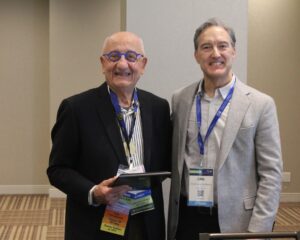
About
Vision
Advancing knowledge, learning and clinical expertise in cardiothoracic radiology.
Mission
The Canadian Society of Thoracic Radiology (CSTR) is a network of Canadian radiologists with an interest in cardiothoracic radiology. The society strives to encourage educational, research and administrative connections to maintain the highest standards of cardiothoracic imaging across Canada.
The CSTR is formed of members with an interest in advancing knowledge, learning or clinical expertise in the area of cardiothoracic radiology to communicate, meet, mentor and discuss research to further this interest.
Goals
- Drive the appropriate, proper and safe use of radiological services;
- Play a leadership role in the development/update of CAR-driven thoracic imaging guidelines, standards and appropriateness criteria;
- Provide access to online educational content for trainees and practicing radiologists; and
- Organize educational and social events during the annual CAR meeting.
President's Message

I am thrilled to be taking on the role of the CSTR President. Following in the footsteps of Drs. Elsie Nguyen, Daria Manos, and Carole Dennie will be no easy task!
I work at St. Paul’s Hospital in Vancouver, BC as a cardiothoracic and body imager. I hope to apply my skills as a current Killam Teaching Laureate, former UBC Diagnostic Radiology Program Director and Researcher to this space.
We have a great team at the CSTR and are excited to bring the world of cardiothoracic imaging to the radiology community in Canada and abroad via a wide range of advocacy and educational initiatives like guideline publication, ASM presentations, increased online learning materials, and increased partnership with the Society of Thoracic Radiology.
We are looking to grow our society, strengthen existing partnerships and build new ones as we move forward. Join us at the CSTR!
Cameron J. Hague, MD FRCPC



